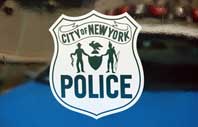Criminal Law
When a child or a minor commits a crime, he or she enters the criminal justice system. However, the system treats minors differently than adults. Rather than calling the minor a “criminal defendant,” the special term used to describe this young person is a “juvenile delinquent.”
The Definition...
Who is legally considered a juvenile or a "minor" and how does the juvenile court handle crimes committed by minors? What rights does your minor child have if arrested?
Definition of a Juvenile or Minor
In most states, a person under the age of 18 is considered to be a juvenile or a "minor."...

